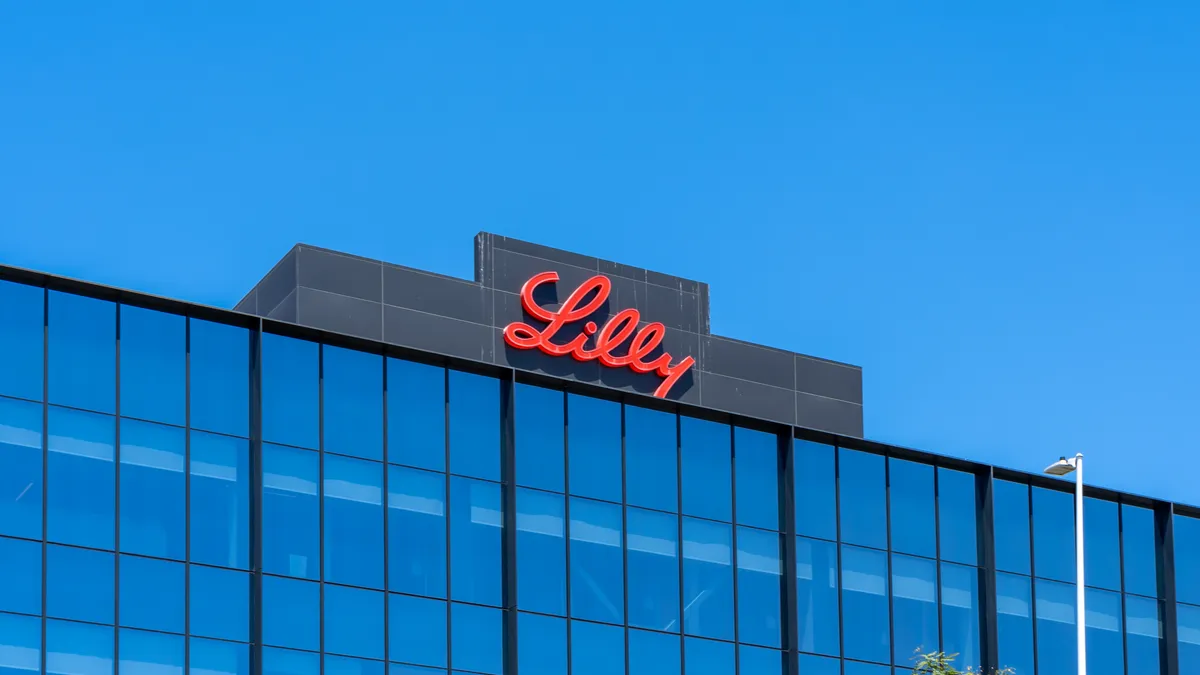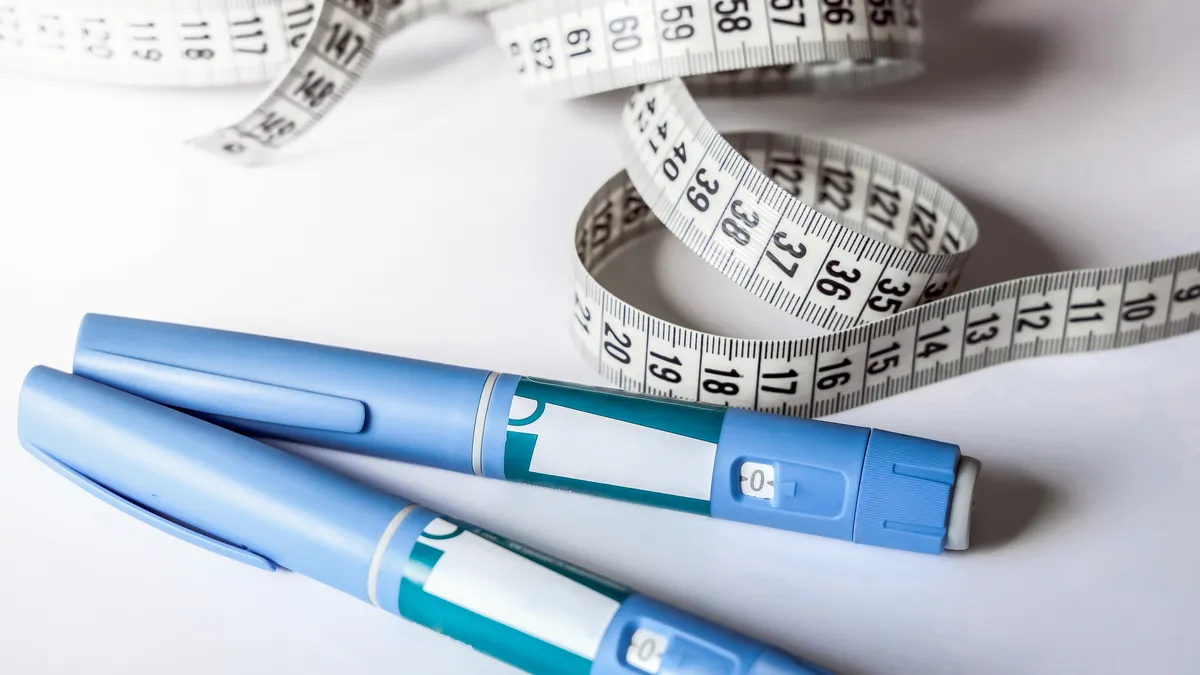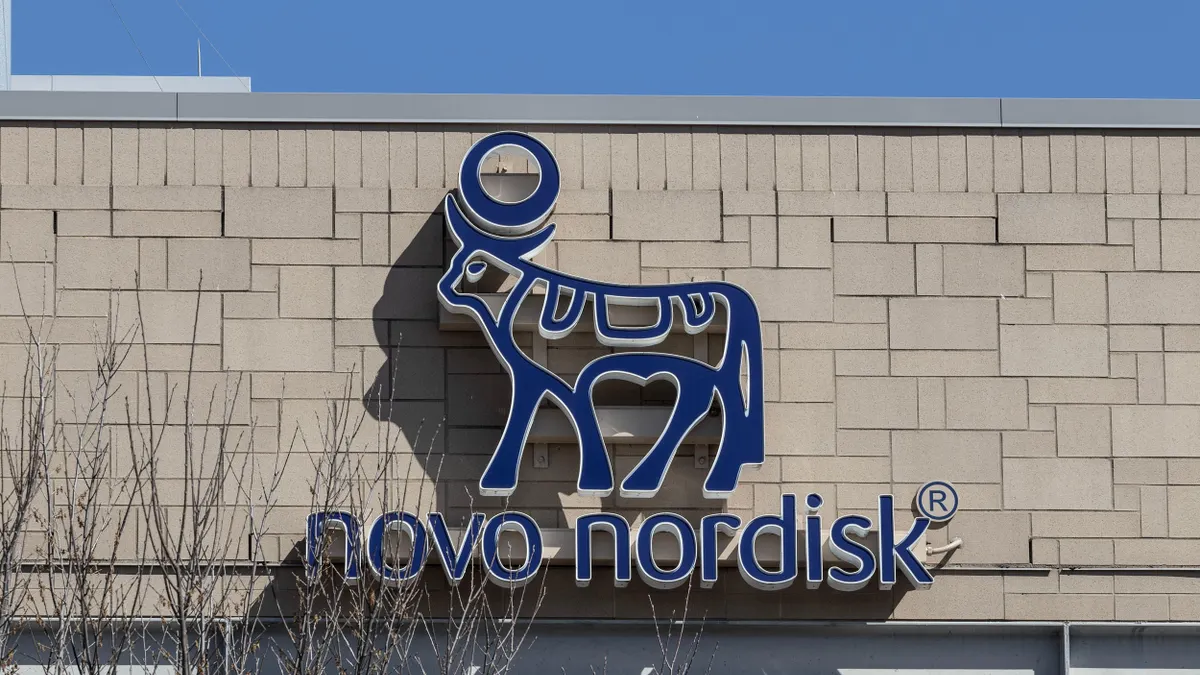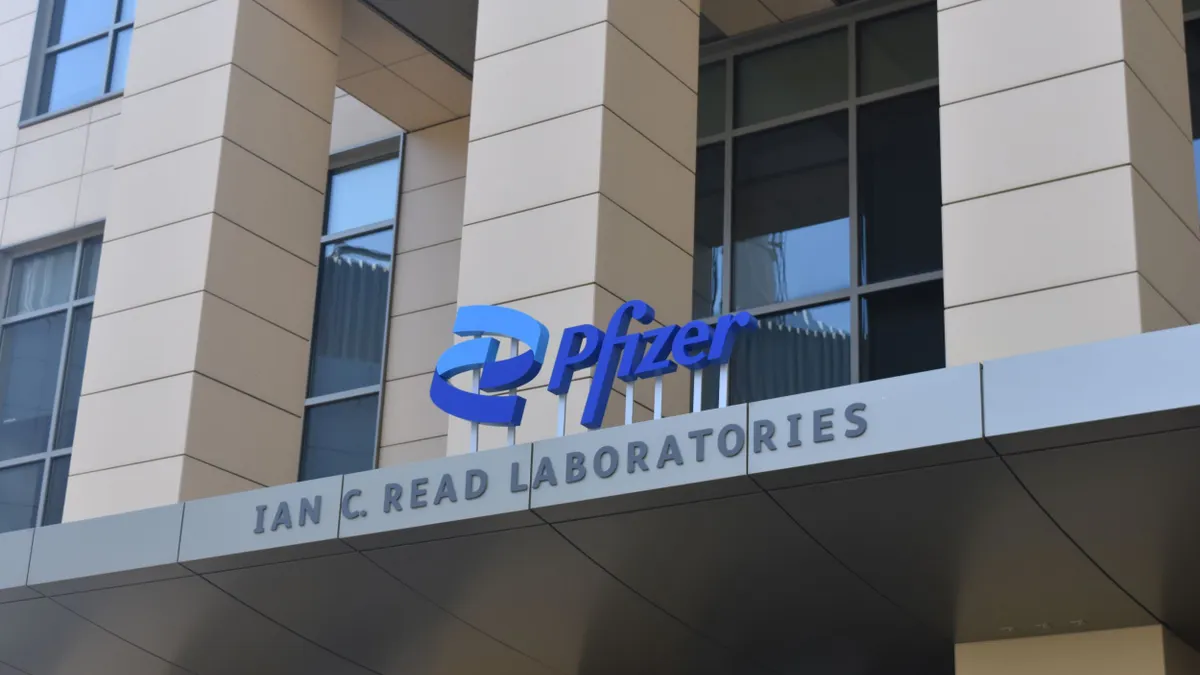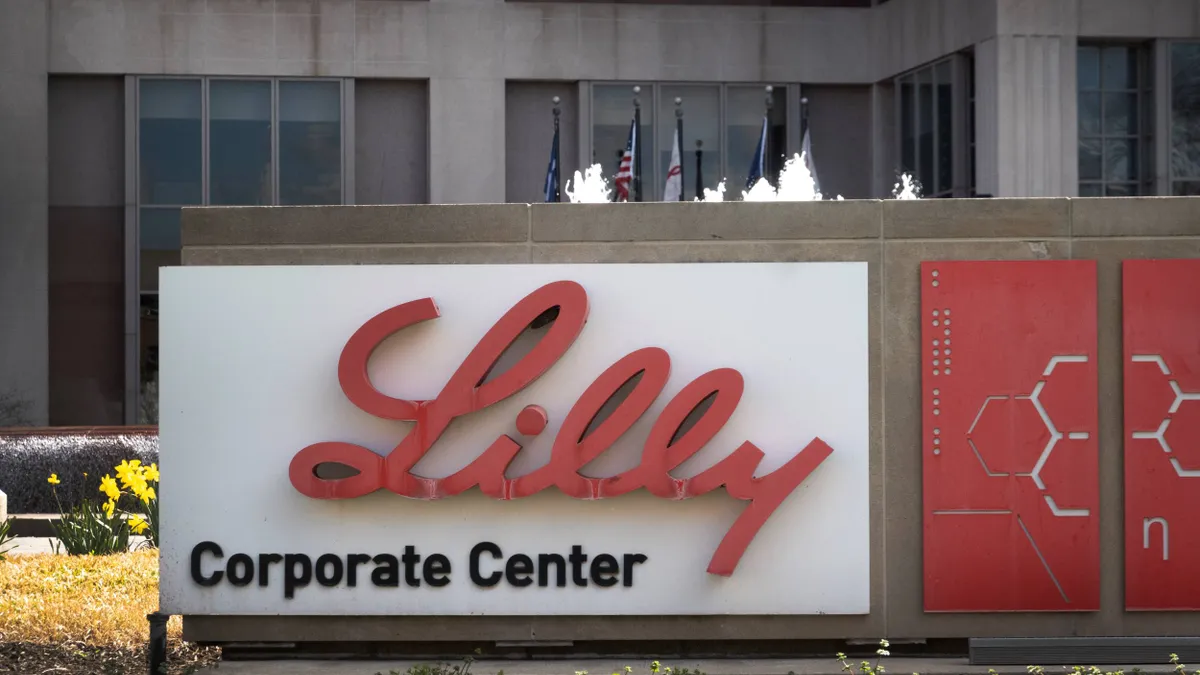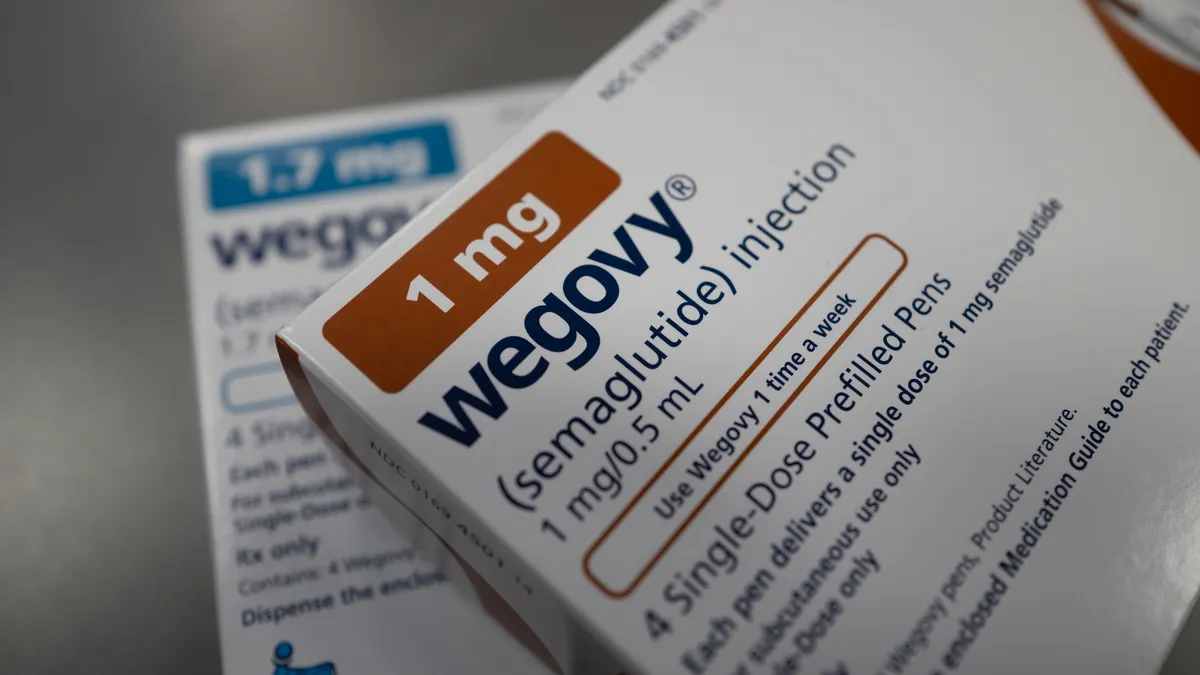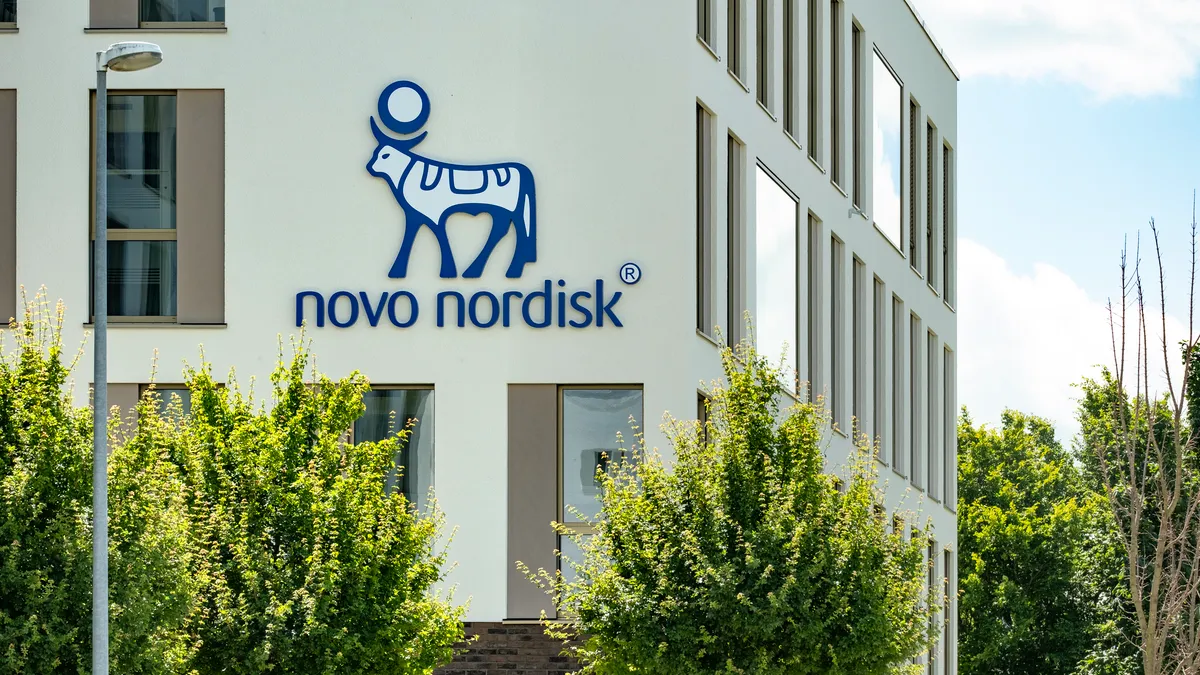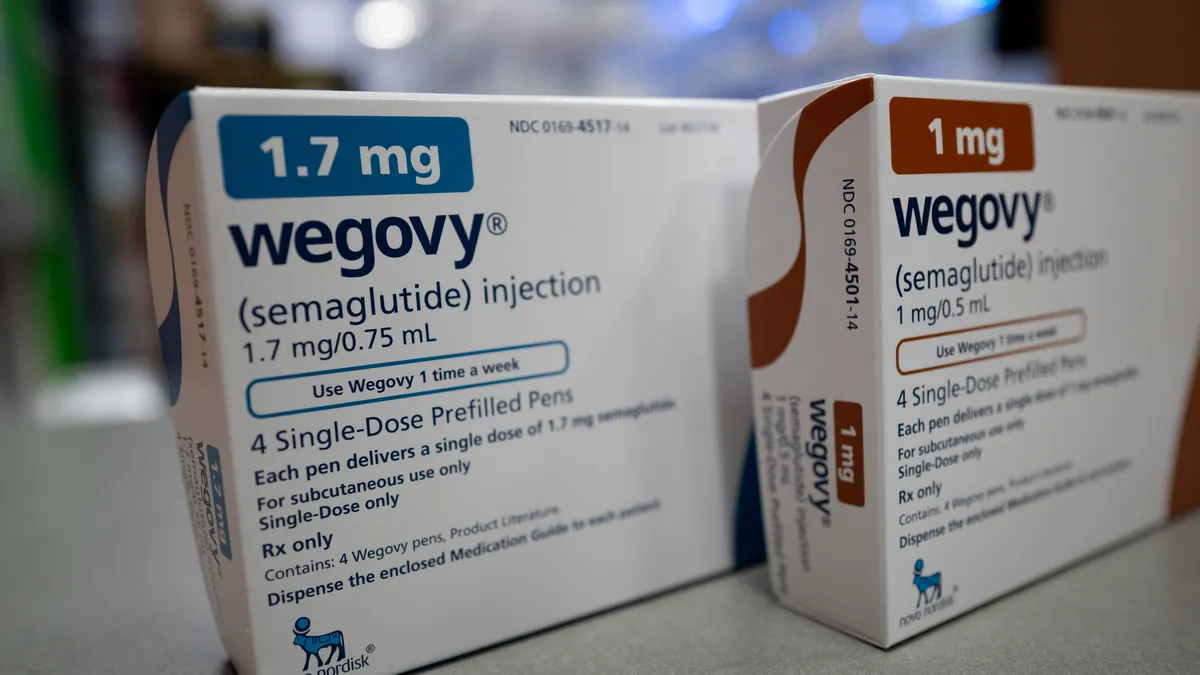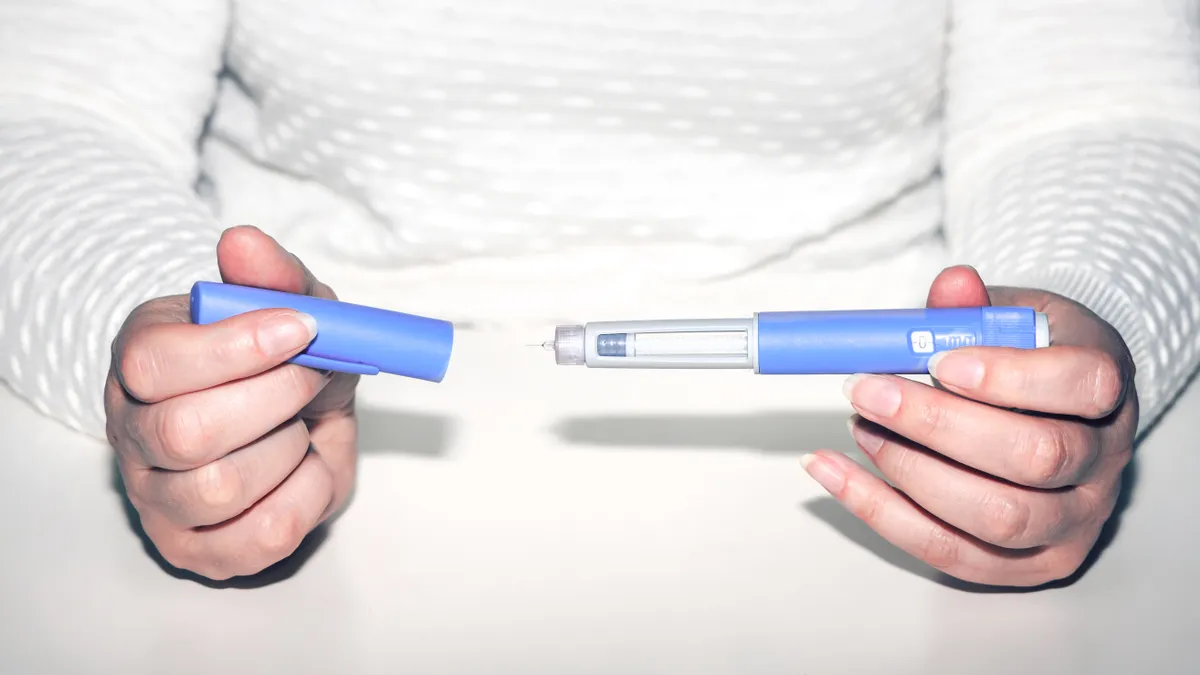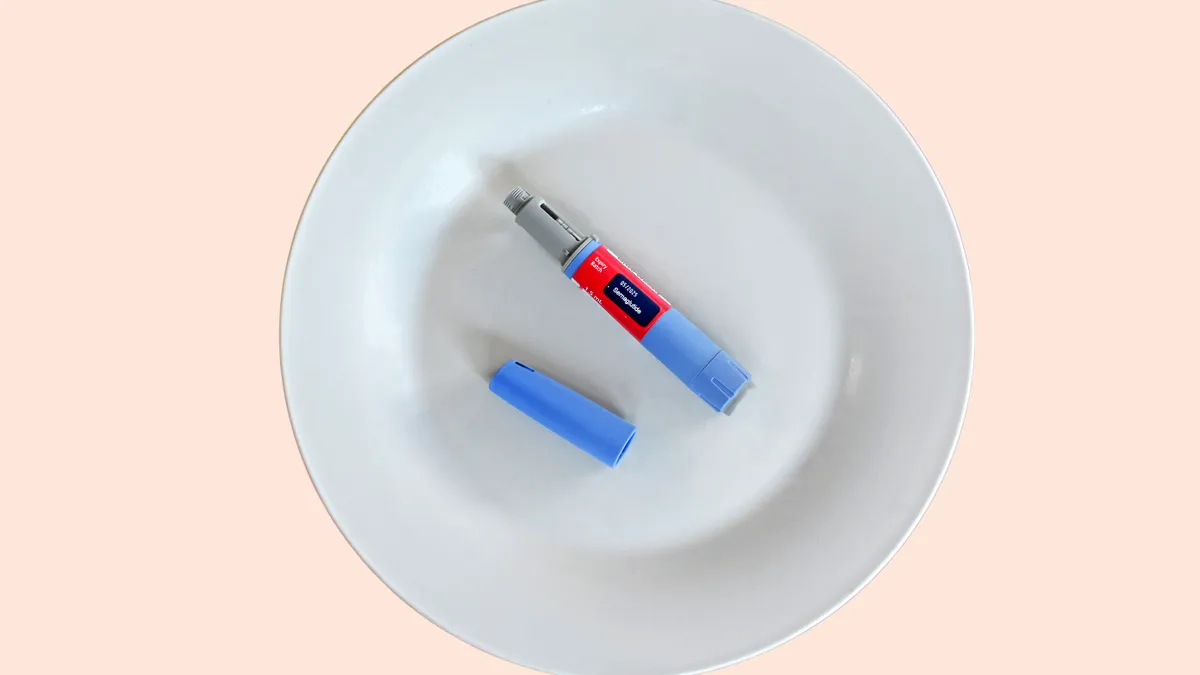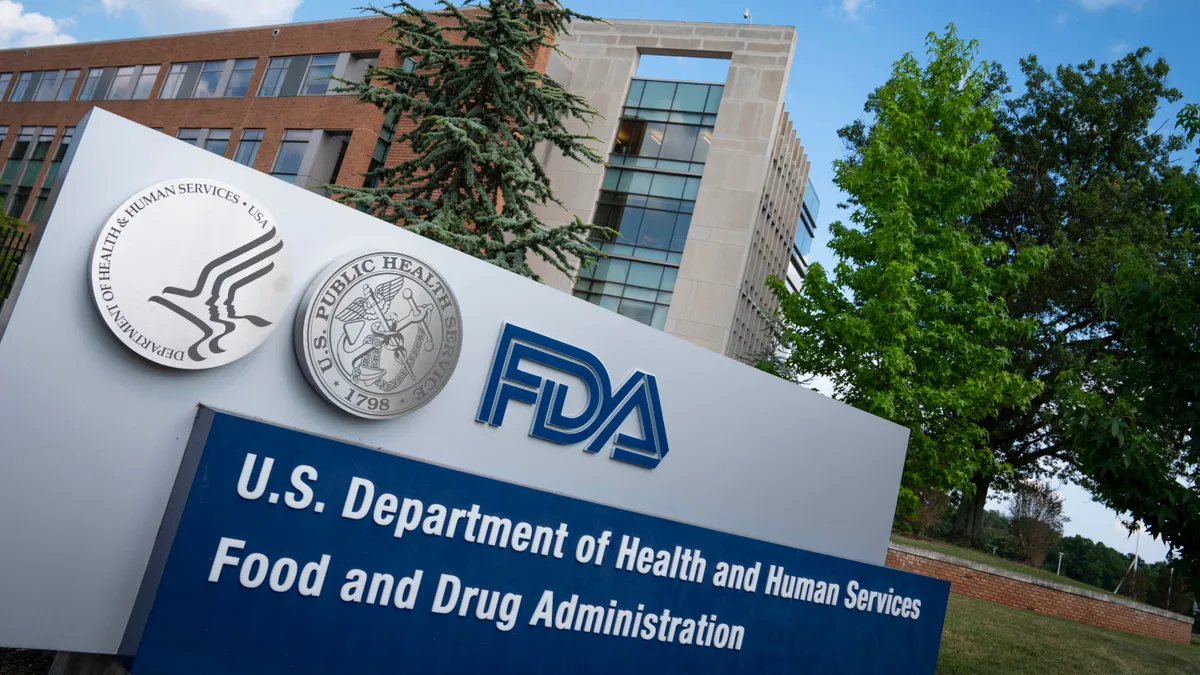Dive Brief:
- Eli Lilly’s weight loss pill orforglipron succeeded in a Phase 3 clinical trial in diabetes, helping study participants control their blood sugar while hinting at weight loss that might be comparable to injectable obesity medicines.
- Enrollees in the 40-week trial saw their blood sugar levels reduced by up to 1.6 percentage points, with 65% achieving healthy levels, the company said Thursday. Notably, the drug spurred an average of up to 8% weight loss, or about 16 pounds, at the highest dose, indicating that the effects will be even greater in Lilly’s longer Phase 3 trial in obesity. Lilly said trial participants “had not yet reached a weight plateau” when the diabetes study ended.
- A pill with similar weight loss effects to injectable GLP-1 therapies — like Novo Nordisk’s Wegovy or Lilly’s own Zepbound — could change the dynamics of the lucrative market for obesity drugs. As a small molecule, or chemical, drug, orforglipron would also be easier to manufacture than its injectable counterparts, which have faced production constraints that have limited uptake.
Dive Insight:
Orforglipron is one of the most closely watched drugs in the pharmaceutical industry. If successful in additional late-stage trials, it could offer people with diabetes or obesity a convenient, oral alternative to injectable therapies and quickly be scaled into mass production.
The drug could also give Lilly a bigger share of a market estimated to top $100 billion annually by next decade. Lilly’s already made significant inroads on that front, with Zepbound outperforming Wegovy in a head-to-head trial. It could further press its top rival with orforglipron, which is expected to produce Phase 3 results in obesity later this year and could be submitted to regulators afterwards. Novo, by comparison, asked for a U.S. approval of an oral version of Wegovy earlier this year, but hasn’t disclosed further details, a spokesperson said.
One of Lilly’s top competitors, Pfizer, also suffered a significant setback earlier this week, when it abandoned development of a rival pill called danuglipron.
The diabetes trial toplined Thursday, Achieve-1, enrolled 559 people with Type 2 diabetes and randomized them to receive one of three daily doses of orforglipron or a placebo. The people in the drug arms started with just a 1 milligram dose of orforglipron and gradually increased to their assigned dose of 3, 12 or 36 milligrams.
Blood sugar reductions, from 8% on average at the study’s start, were 1.3, 1.6 and 1.5 percentage points respectively in the 3, 12 and 36 mg groups, compared to a 0.1 percentage point reduction in the placebo group. Trial participants, who had a baseline mean body weight of 199 pounds, lost 4.7%, 6.1% and 7.9% of their weight on the three doses, versus 1.6% in those receiving a placebo.
Orforglipron was associated with the same gastrointestinal side effects commonly seen with GLP-1 therapies. Notably, though, the rates of such side effects appear to be lower than what Lilly observed in earlier testing, which could be attributed to the gradual dosing increase in the Phase 3 study, wrote Evercore ISI analyst Umer Raffat.
Elevated liver enzymes, a sign of possible organ damage, had also been seen in earlier testing. Though Lilly didn’t provide specific details, it did say Thursday that “no hepatic safety signal was observed.”
In a separate research note, Leerink Partners analyst David Risinger called the results “picture perfect.” Though the data are from a shorter trial in diabetes, the drug’s safety and efficacy appear comparable to Novo’s drug, Risinger wrote. Multiple analysts had a similarly positive take, arguing orforglipron could set the standard for oral obesity drugs.
The results have implications for others following with such medicines. Structure Therapeutics is developing a small molecule GLP-1 pill, while Viking Therapeutics and Zealand Pharma have peptide counterparts that could be at a disadvantage. And Novo, without a “viable” oral drug, may start facing tougher competition next year should orforglipron get to market for obesity and diabetes, Jefferies analyst Benjamin Jackson wrote.
Lilly shares rose nearly 15% in morning trading, swelling its market value by more than $100 billion.
Editor’s note: This story has been updated to clarify the regulatory status of Novo’s oral version of Wegovy.














